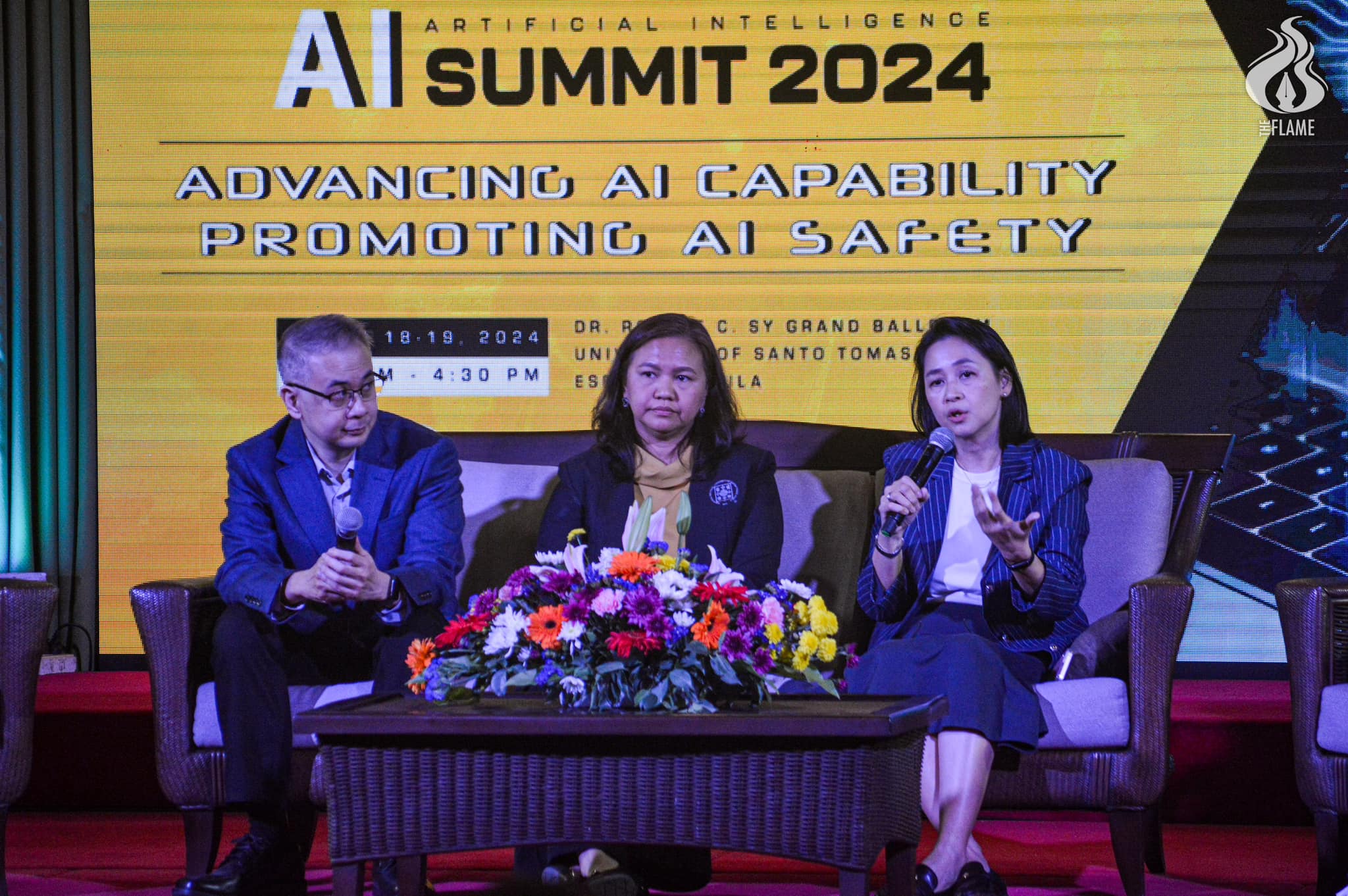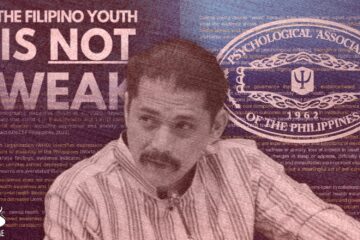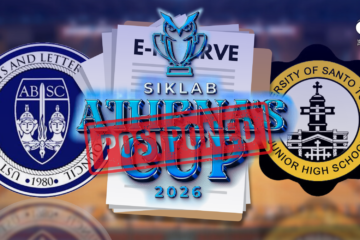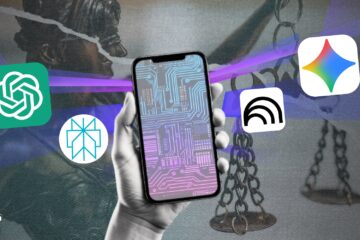
UST is aiming to maximize the use of artificial intelligence (AI) through several capacity-building programs as it plans to integrate available technologies in permanently implementing a hybrid mode of instruction.
Vice Rector for Academic Affairs Prof. Cheryl Peralta said the University is continuously upskilling educators in using AI tools as the technology could be the “future” of the workforce.
“Educators will need to envision the future…But we might need to extend those imagination further with all these technologies around us. We maximize them while mitigating the risks that come with them,” Peralta said on Monday, March 18, during the 2024 AI Summit.
“It is only when we are aware of what AI can do that we can actually move to developing learning and development plans for other people,” she added.
The academic affairs chief noted that faculty members in different departments began undergoing training on using AI as early as July 2022.
Efforts to develop UST’s instructional technology include its subscription to AI tools which is expected to “enhance operational efficiency and effectiveness” and improve its “teaching and learning environment.”
In an interview with The Flame, Peralta revealed that the University would permanently adopt the hybrid modality to maximize the use of AI and technology since the directive would be “very difficult” to implement in purely onsite classes.
RELATED: (UPDATED) Hybrid learning to be a permanent set-up in UST, says academic affairs chief
“That’s also the reason why we really pursue hybrid learning as an approach…The future of work really has to use technology. And if we do not promote hybrid instruction, then students will not be deliberately trained in the use of all these technologies,” she said.
Peralta cited the benefits of AI use in terms of planning strategies, content and policies for some assessments but acknowledged that some professors may still be wary of using such tools.
“Like what the speakers said earlier, we are resistant to things we do not know. So as we expand our knowledge of artificial intelligence, as we discuss it more openly… then we gain a better understanding [of it],” Peralta said.
“We know that industries need it (AI). We know that the global world uses it, that there are national frameworks already being developed, and teachers are at the forefront of producing the future professionals who need to work with artificial intelligence,” she added.
According to her, certification programs and workshops are in place to further enhance the AI capabilities of educators, while a summit on advancing AI capability for students is also underway. These would also cover “more inclusive” aspects of technology, she said.
Educational Technology Center director Anna Ramos echoed the same views, believing AI tools would allow teachers to determine the knowledge gaps among students and provide necessary intervention through automated grading and feedback offered by the technology.
Keeping pace with such developments would also ensure that students are equipped with technical proficiency, she added.
“The world is different, kids are different, learning is different and teaching must be different, too. That was our direction: to be able to push our teachers to be able to embrace digital instruction,” Ramos said.
The 2024 AI Summit was held at the grand ballroom of the Buenaventura Garcia Paredes, O.P. building from Mar. 18 to 19.
Under the theme “Advancing AI Capability, Promoting AI Safety,” the two-day event gathered educators, AI professionals, researchers, industry experts and policymakers to discuss their insights on AI use and the best practices for its integration in education. F




[…] READ: UST to boost AI use in instruction delivery as hybrid learning stays […]